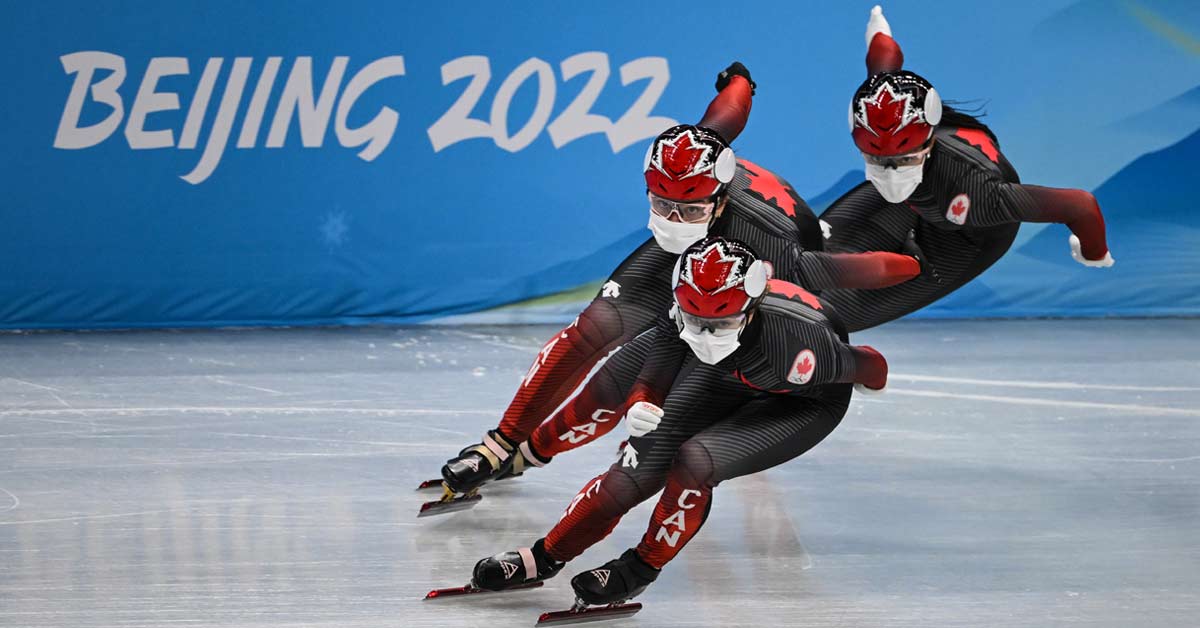On the eve of the Winter Olympics, China promised the world a “streamlined, safe and most splendid” Games. But just two days into the event organisers are facing a litany of complaints from athletes and countries on multiple fronts.
The Swedes have suggested that the conditions in the mountains are perilously cold. A Polish skater says she was living in fear in a Beijing isolation ward and has “cried until I have no more tears”. The Finns have claimed an ice hockey player is being kept in COVID quarantine for no reason. And the Germans? They are frustrated that there is no hot food at the downhill skiing.
Athletes were always going to face difficulties in Beijing, given they are in a “closed loop” system that forbids them from leaving the village except to train, compete or go home. However, a growing number are now expressing frustration and anguish with other aspects of their Winter Olympic experience.
Plummeting temperatures are usually a given at the Games, but the Swedish delegation are urging cross-country skiing events to be held earlier in the day after one athlete, Frida Karlsson, was seen shaking and close to collapse at the end of the women’s 7.5km+7.5km skiathlon.
Under the rules of the International Ski Federation (FIS), competitions are stopped from taking place when temperatures are below -20 degrees Celsius. When Karlsson competed on Saturday, temperatures at the National Cross-Country Centre in the mountains of Zhangjiakou, 130 miles north-west of Beijing, were -13 degrees Celsius – but with windchill it was far colder.
“We have the cold limits but I do not know if they also measure the wind effect,” the Swedish team boss Anders Bystroem told reporters. “If FIS says it’s -17 degrees and it’s windy, and it’s -35 degrees with the wind chill, what do you do then?”
The Swede called for Tuesday’s women’s sprint race to be moved earlier in the day because of the freezing temperatures. “The skiathlon started at 4:00 pm and Frida Karlsson was completely destroyed by the cold. It’s not good that the sprint starts even later,” he added.
Meanwhile the Polish speed skater Natalia Maliszewska, who was forced to miss the 500 metres short track event on Saturday, revealed that she had faced fear and uncertainty in a Beijing isolation ward after testing positive for COVID.
“Since a week I have been living in fear and these changes in mood,” she said. “I cry until I have no more tears and make not only the people around me worry but myself too,” she said. Those in an isolation ward are allowed out if they are free of symptoms and have two negative COVID tests 24 hours apart and Maliszewska was eventually released back to the Olympic village – before being told there had been a mistake.
“People got me out of my room at 3:00 am,” she said. “This night was a horror, I slept in my clothes in my bed because I was afraid that at any moment someone would take me back to isolation. Then a message that unfortunately they were mistaken, that I am a threat, and should not have been released from isolation.
“I have to get back to the Olympic Village as soon as possible,” she added. “I can’t understand this anymore. I no longer believe in any tests, any Olympics. To me this is a big joke, I hope whoever is managing this has a lot of fun. My heart and my mind can’t take this anymore.”
In Isolation Wards
More than 350 Games participants, including dozens of athletes, have tested positive upon arrival in the Chinese capital since 23 January. Many are still in isolation, fearing their Games are over. One of those is the Finnish ice hockey player Marko Anttila, whose team believes he is being kept in COVID-19 isolation for no reason.
“From a medical perspective we know that a person like this is no longer infectious, no danger to the other team,” Finnish doctor Maarit Valtonen said. “These isolation decisions are not based on medicine or science, it’s more cultural and political decisions.”
The Finland head coach Jukka Jalonen said that the situation was affecting Anttila’s mental health. “We know that he’s fully healthy and that’s why we think that China, for some reason, won’t respect his human rights and that’s not a great situation,” he added.
The Russian biathlon competitor Valeria Vasnetsova also recently expressed her experiences of being in a quarantine hotel, posting on Instagram: “My stomach hurts, I’m very pale and I have huge black circles around my eyes. I want all this to end. I cry every day. I’m very tired.”
Vasnetsova posted a picture of what she said was “breakfast, lunch and dinner for five days already” – a tray with food including plain pasta, an orange sauce, a piece of meat on a bone, a few potatoes and no greens.
Meanwhile, after the men’s downhill was postponed until Monday due to high winds, Germany’s coach Christian Schwaiger lamented there was no hot food available for athletes. “The catering is extremely questionable, because really it’s not catering at all,” he said. “I would have expected that the Olympic Committee is capable of providing hot meals. There are crisps, some nuts and chocolate and nothing else.”
The IOC said it was aware of the complaint and was working with Beijing 2022 to address the issues. Asked about the situation in the COVID hotels, the IOC added: “We feel for every athlete who cannot compete because of a COVID-19 infection. The protocols have been put in place to ensure safe Olympic Games for everyone.”
